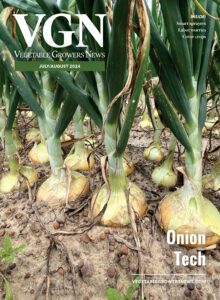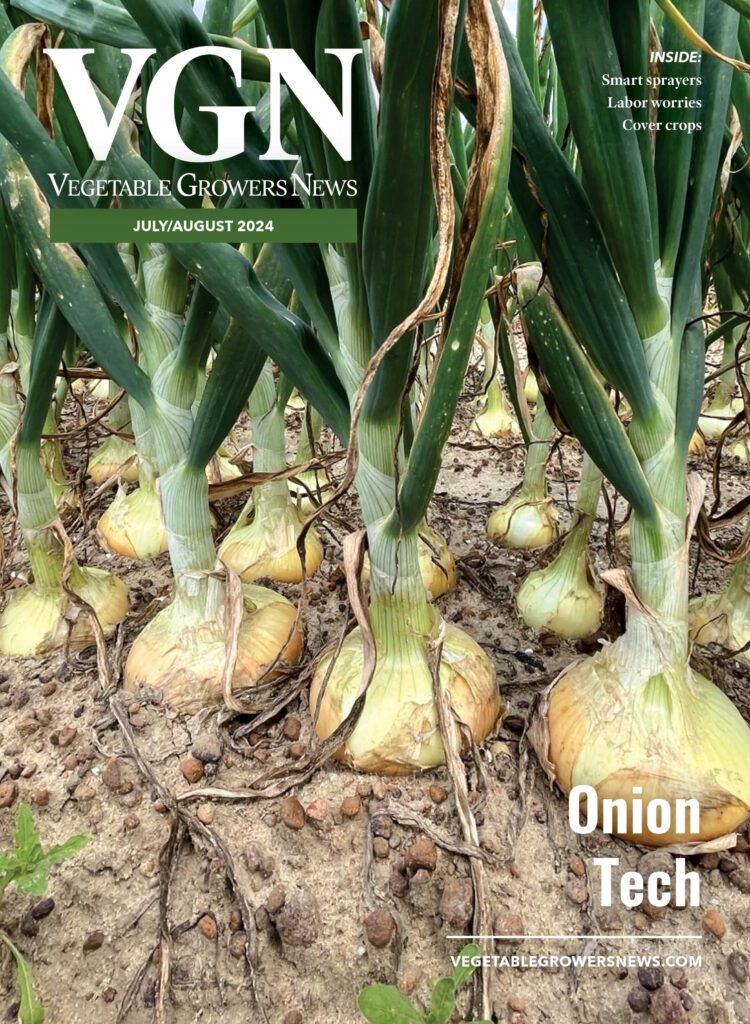Oct 27, 2008Cattle Vaccine Reduces E. coli O157, Approved in Canada
Bioniche Life Sciences Inc., a Canadian biopharmaceutical company, announced Oct. 27 that Econiche, the world’s first vaccine designed to reduce the shedding by cattle of Escherichia coli O157:H7, has received full licensing approval from the Canadian Food Inspection Agency.
Econiche is now available for unrestricted use by Canadian cattle producers and their veterinarians.
The vaccine has the potential to significantly reduce the amount of E. coli O157 shed into the environment by beef and dairy cattle and, in turn, reduce the risk to human health, according to the company.
Most strains of E. coli are harmless but some, like O157:H7, can cause severe illness and even be fatal when ingested by humans from contaminated meat, vegetables or water. Vaccination of cattle with Econiche can help reduce the risk of food and waterborne contamination with E. coli O157:H7, according to the company.
“Cows carry E. coli O157:H7 but they don’t get sick. Where the disease comes from is people encountering contaminated food or water, usually from cow feces,” said Brett Finlay, University of British Columbia microbiologist and bacterial diseases expert, whose research led to the development of the vaccine. “If we block the colonization of cows by O157, we basically decrease the number that humans are exposed to, and thus drop the disease levels in humans.”
The vaccine has been tested in the United States by researchers at the University of Nebraska, Lincoln, who reported a 98.5 percent efficiency when steers in feedlot pens were vaccinated. Vaccinated animals had 1 percent the chance of being infected with the bacteria. Not only did the vaccination reduce shedding by individual animals, the researchers found a “herd effect” -– unvaccinated animals in the pen were less likely to become infected.
E. coli O157:H7 colonizes the large intestine of some cattle within 2 inches of the anus, and these colonies shed the bacteria into the environment.
The vaccine prevents the E. coli O157 bacteria from attaching to the intestines of vaccinated cattle, thereby reducing their reproduction within the animal and reducing the amount of bacteria that can be released through cattle manure in the environment. More than 30,000 cattle have been involved in clinical testing of the vaccine over the past six years.
Human exposure and infection with E. coli O157:H7 can result in serious health consequences, including abdominal pain and severe bloody diarrhea. In severe cases, kidney damage can occur and progress to serious complications and even death.
An estimated 100,000 cases of human infection with the E. coli O157:H7 organism are reported each year in North America, according to the vaccine developer. Two to 7 percent of those people develop haemolytic uremic syndrome (HUS), a disease characterized by kidney failure. Five percent of HUS patients die, many of them children and senior citizens, whose kidneys are more sensitive to damage.
In addition to being infected by contaminated food or water, people can become infected from E. coli O157:H7 by visiting animal exhibits such as petting zoos and fairs.
USDA informed the company in February that the latest data for Econiche “meets the ‘expectation of efficacy’ standard” and is eligible for a conditional license, providing that the company develops a plan “that would collect sufficient data to move the product to full licensure.” The conditional license would provide the company full access to the U.S. market with two restrictions: At least one step in the manufacturing process must be performed in the United States, and Bioniche will not be permitted to use the trademark for the vaccine.
Econiche will be manufactured in the Bioniche production facility in Belleville, Ontario, where a $25-million expansion is taking place, supported by the Ontario and Canadian governments. Vaccine supply will be limited during this manufacturing expansion period.














